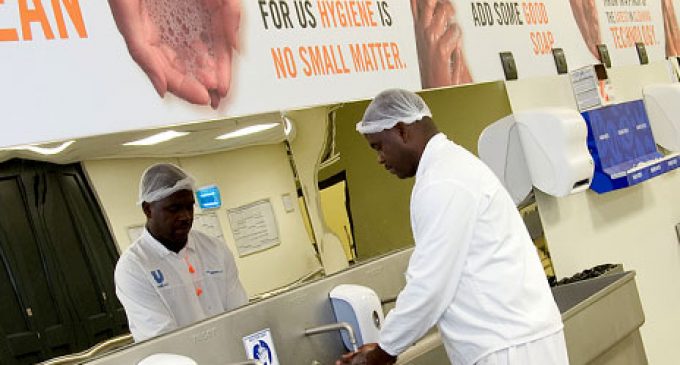New Unilever Plant Sets Global Sustainability Standards

Unilever’s R670 million (Eur61 million), state-of-the-art savoury foods plant in Durban is setting new global standards in responsible and sustainable dry food production. It as one of the largest private investments in South Africa since the 2010 World Cup. The new plant is named Indonsa, meaning “Morning Star” in IsiZulu, and produces renowned brands such as Knorr, Robertson’s, Knorrox, Aromat and Rajah. It is in start-up phase and will be in full production by the first quarter of 2012.
The Indonsa plant has the ability to become the biggest dry food site in Unilever world-wide. It has been designed to produce 65 000 tonnes of product per year and has an expansion capability of up to 100 000 tonnes. The 22 000 square metre factory is equivalent to three soccer fields and is situated on 78 000 square metres of land.
Indonsa is a global first for the group in terms of advancing its focus on advanced sustainable ‘green’ technology. It is Unilever’s second largest plant in the world and its fifth plant in South Africa. Globally Unilever operates 250 plants selling about 170 billion products in 180 countries annually.
The global Unilever Sustainable Living Plan (USLP) and local chapter, aim to reduce the environmental impact of its entire products by 50%, source 100% of its agricultural raw materials sustainably, and assist a billion people to improve their wellbeing and general health. Indonsa is an example of the USLP delivered in practice.
“The advanced technology in operation at Indonsa sets new global standards in responsible and sustainable dry food production. It embodies our resolve to simultaneously improve the lives of people and to entrench respect for the environment,” says chairman for Unilever South Africa, Marijn van Tiggelen.
Unilever aims to globally reduce CO2 emissions from manufacturing and logistics by over 40% by 2020 from its 1995 baseline, at a rate of almost 5% a year.


































